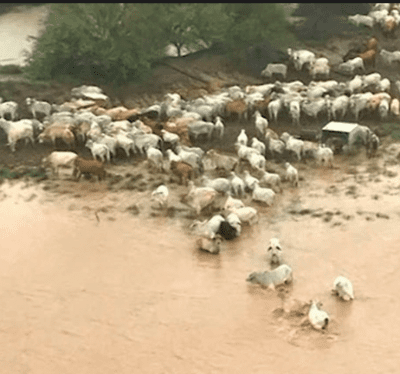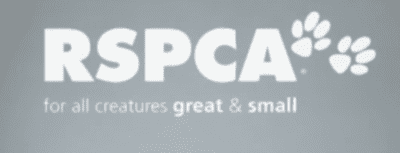SHOULD the RSPCA be playing a role in helping to assist livestock affected by floods in north western Queensland, now widely recognised as one of the greatest animal welfare disasters in Australian history?
 The charity, the various arms of which around Australia collectively draw close to $100 million in donations each year to support animal welfare, has not commented publicly on the unprecedented losses or indicated whether it will provide some resourcing or offer to use its large support networks to provide assistance.
The charity, the various arms of which around Australia collectively draw close to $100 million in donations each year to support animal welfare, has not commented publicly on the unprecedented losses or indicated whether it will provide some resourcing or offer to use its large support networks to provide assistance.
Comparisons are being drawn between the organisation’s silence on the animal welfare crisis caused by northern flooding and its active political campaigning to shut down the $1 billion per year livestock export trade on animal welfare grounds, despite Government reports showing more than 99.8 percent of livestock exports comply with ESCAS standards.
A number of social media posts in recent weeks have questioned the RSPCA’s role and whether it should be using donated revenue to fund political campaigns or to assist animals in direct peril.

Estimates suggest hundreds of thousands of cattle have already died as a result of the floods and many remain under threat from potential starvation, thirst or disease in the aftermath of the event.
Supported by advertising promoting its role as charity for “all creatures great and small”, the RSPCA’s national and state organisations collectively attract close to $100 million in donations every year.
The RSPCA does not disclose its annual income on its websites but as a registered charity it is obliged to submit an annual information statement and an annual financial report to the Australian Charities and Not-for-profits Commission.
Reports on the ACNC website shows that the Federal and State entities of the RSPCA collectively report annual revenue in excess of $180 million, of which donations and bequests accounts for close to $100 million (in additions to donations the RSPCA also earns revenue from providing goods and services, membership subscriptions, royalties from the Approved Farming Scheme and Government grants).
By comparison figures reported on the ACNC website show animal rights group Animals Australia received $9.3 million total income in 2017-18, $8.9m of which was from donations and bequests, and PETA Australia reported earnings of $2.1m in the same year, all from donations.
RSPCA revenue reported to ACNC:
RSPCA Australia (2016-17)
Total income $9.8m (includes $3.3m in donations and bequests, $5.5m in revenue from providing goods and services, $2m in membership subscriptions, $1.9m in royalties, $1.5m from Approved farming scheme)
RSPCA Victoria (2017-18)
Total income $38.7m ($21m in donations and bequests, $12.2m revenue from providing goods and services, $2m in Government grants $2m)
RSPCA Western Australia (2017-18)
Total income $10m ($6.9m in donations and bequests, $2.2m in revenue from providing goods and services $2.2m, $600,000 in Government grants)
RSPCA Tasmania (2017-18)
Total income $3.3m ($1.9mm in donations and bequests, $12.2m in revenue from providing goods and services, $2m in Government grants)
RSPCA ACT 2017-18
Total income $5.5m ($2.6m donations and bequests)
RSPCA Queensland 2017-18
Total income $51m ($21m donations and bequests, $25m in revenue from goods and services, $3.7m in Government grants)
RSPCA South Australia (2017-18)
Total income $10m ($6.2m donations and bequests, $2.6m in revenue from goods and services, $1m, govt grants)
RSPCA New South Wales (2017-18)
Total income $59m ($32m donations and bequests, $12m in revenue from goods and services $12m, govt grants $1m)
Sheep Central has emailed questions to the RSPCA asking if the organisation has a role to play in assisting with the welfare of livestock in the flood-affected region, but has yet to receive a response. We will update this article with the RSCPA’s response if and when a reply is received.
Under State and territory legislation the RSPCA has powers to investigate and enforce animal welfare law and to issue fines and initiate prosecutions.
The RSPCA website says the charity works closely with the farming sector to make a positive impact on the lives of farm production animals by providing an environment that meets their behavioural and physiological needs.
The RSPCA’s role is clearly focused on the prevention of cruelty, but is there an expectation from the many supporters who donate to the charity that it should also use its resources to assist in a mass welfare event?

There is a difference between events that cannot be stopped which cause animal deaths — like a cyclone /flooding etc that we have seen in Queensland and with events such as the animals on ships that are let die because of man-made conditions.
Yes, forward planning is essential. All organisations such as the RSPCA etc, local, state, federal governments, and the animal/property owner should have a disaster plan that can be put into action ahead of disaster, rather than allowing the situation to be too far gone before trying any rescue. The recent animal deaths are a reflection of no planning. If there was a plan, what went so very wrong?